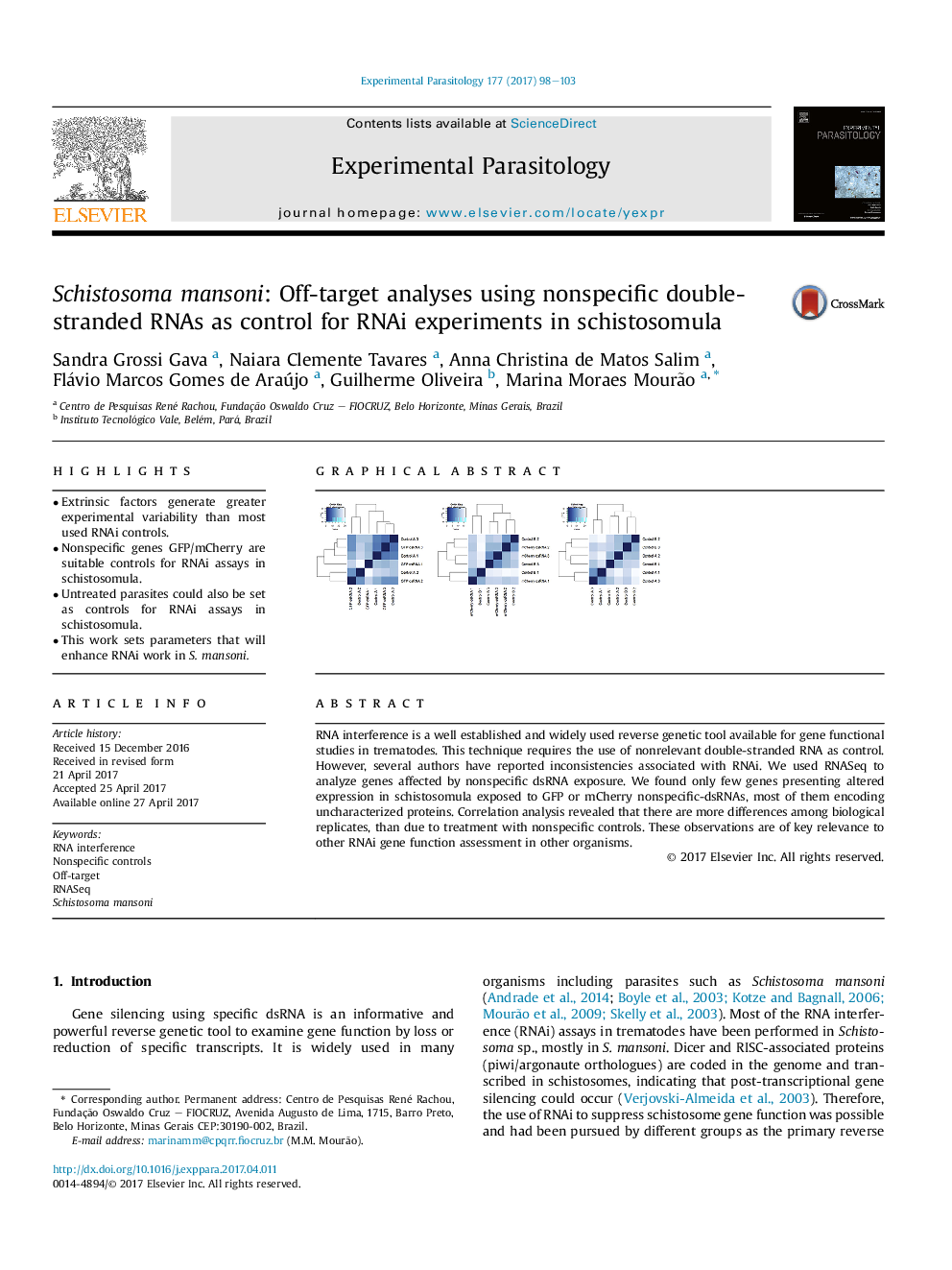| Article ID | Journal | Published Year | Pages | File Type |
|---|---|---|---|---|
| 5741114 | Experimental Parasitology | 2017 | 6 Pages |
â¢Extrinsic factors generate greater experimental variability than most used RNAi controls.â¢Nonspecific genes GFP/mCherry are suitable controls for RNAi assays in schistosomula.â¢Untreated parasites could also be set as controls for RNAi assays in schistosomula.â¢This work sets parameters that will enhance RNAi work in S. mansoni.
RNA interference is a well established and widely used reverse genetic tool available for gene functional studies in trematodes. This technique requires the use of nonrelevant double-stranded RNA as control. However, several authors have reported inconsistencies associated with RNAi. We used RNASeq to analyze genes affected by nonspecific dsRNA exposure. We found only few genes presenting altered expression in schistosomula exposed to GFP or mCherry nonspecific-dsRNAs, most of them encoding uncharacterized proteins. Correlation analysis revealed that there are more differences among biological replicates, than due to treatment with nonspecific controls. These observations are of key relevance to other RNAi gene function assessment in other organisms.
Graphical abstractDownload high-res image (198KB)Download full-size image
